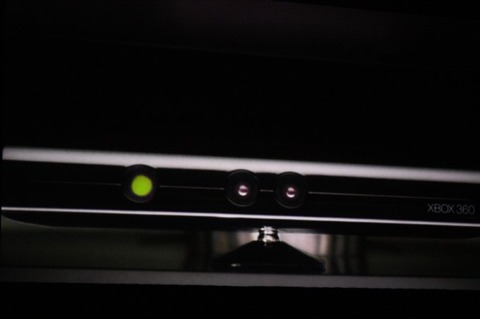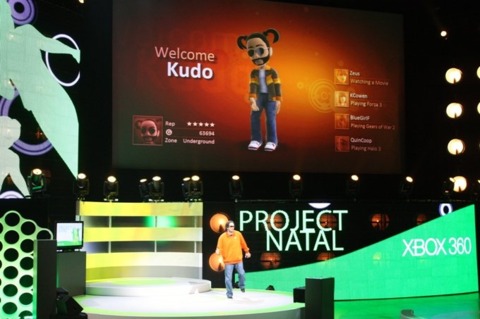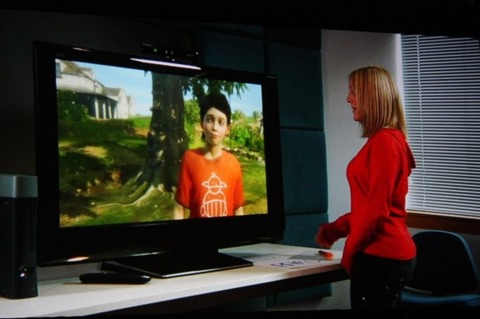Epic, Bungie playing with Project Natal
E3 2009 Q&A: Microsoft Game Studios head Phil Spencer talks about the origins of Microsoft's motion-sensing device--and how two top developers have been looking at its technology for "quite some time."
LOS ANGELES--On Monday, Microsoft fired a massive first shot across the bow of its competitors during its E3 Press Conference . Besides announcing several new Xbox 360 console exclusives, such as Halo: Reach, Crackdown 2, and Left 4 Dead 2 (also on PC), the company took the wraps off its long-rumored motion-sensing controller.

Code-named Project Natal, the device differs from the Nintendo Wii and the experimental technology Sony unveiled at its Tuesday press event. Instead of relying on a motion-sensing controller held by a player, it tracks the movements of the player's body. According to film director and Boom Blox executive codesigner Steven Spielberg, its simplicity will remove the last barrier for mass acceptance of games.
"Since [Microsoft senior vice president, Interactive Entertainment Business] Don [Mattrick] and I met over a decade ago, we have asked how we could make interactive entertainment as accessible as books or music?" the director asked, "We realized the only time we could do that is make the technology invisible."
To learn more about Project Natal, GameSpot caught up with Phil Spencer, head of Microsoft Games Studios, and asked him a few questions about the device, which will be compatible with all Xbox 360s past, present, and future.
GameSpot: How long has Microsoft been working on Project Natal?
Phil Spencer: Project Natal is the combination of a lot of software work that's been going on within the company for quite a while. If you think about the different technologies at play--you have facial recognition, voice recognition, skeletal tracking--you have things that Microsoft research has been working on for years.
Some of this stuff, like voice recognition, you've seen in the past, and it's a continuation of that work. It's based on strengths we have. We're a software company that's focused on research and development. As content creators at Microsoft worldwide studios, we've been thinking about the barriers to people playing games for a while. We've thought about controller-less gaming and how we'd interact--Dimitri was something we incubated at Lionhead many years ago--and what you see in Milo today is sort of the culmination of platform innovation working in sync with a lot of our content creators and content leaders.

GS: We've heard some CEOs from third-party publishers that the next-generation of hardware is coming sooner than we think, but with Project Natal, it seems like Microsoft is trying to show that the 360's life is going to extend far beyond what everyone thinks.
PS: I just think they were talking about Natal [laughs]. We're a software company. I think we somewhat reinvented our platform last fall with the new Xbox experience. We rewrote the OS for our platform and gave people completely new experiences. You didn't have to go buy a new piece of hardware to do that.
For us, generations start when new experiences hit the market and not when we try to sell you a new console. When we launch Natal, the content, fun, and creative work that people will get to interact with…I think for those people that will be the next-generation. Other companies might define it differently, but for me, it's about people doing things in a new way--things that they've never done before, and I see that with Natal.
GS: Any details on a price or launch date?
PS: We're using this E3 to show the progress we've made. We have a firm belief that we have the technology and creations that will define the market when they come out for this space. As first party, we've always been about tentpole games, call them showcases or hero experiences, either for Live or for the 360, or for the original Xbox when it came out.
The work had come along, and we felt that we had a solid plan with a solid launch portfolio and a portfolio for the next few years, so we thought we should start talking about this publicly. We're shipping dev kits out, which clearly--when you start shipping dev kits out…the chances of leaks and everything go up. But frankly, I thought we were ready to stand on stage and show off our work, and I thought it held up pretty well.
GS: Who do you see as the target audience for this? Are there a wide variety of games in development or is there a push for a specific audience?
PS: It's about everybody. I know that's kind of cliche coming from a platform holder, but we chose to highlight three experiences that were opposite ends of a triangle. We showed Ricochet, and that was a very active experience--a very physical experience. Then [we showed] Paint Party, which is much more creative and collaborative. Is that a game or just an activity? I don't think it really matters because people have fun playing with that.

Then, we showed Milo. Here's something completely different to throw you a curve--something that is completely making use of the technology but is not overt. It's not playing to the physical nature first. It's playing the game experience. We've talked with our partners, like Epic and Bungie, and our internal studios about the technology for quite awhile. You're going to see a range of experiences when we finally come to market.
GS: Are software companies confused about how to integrate Natal into traditional games? We've seen everything driven by a controller, but now that people are able to do things with their bodies, are developers going to be able to take that next step into immersive gameplay?
PS: I do think it's a challenge, but a good challenge, for creators to remove some of the learning that you have. I spent a couple of years in England…I came back in October, so it was around when we were incubating Milo, working with the team at Lionhead and some of the unveiling of thinking that needs to happen. Teams, especially third parties as they start seeing this for the first time and start working on it…there will be a new learning process.
But, let's face it: The games we play today do an amazing job of taking a physical activity onscreen and mapping it through this somewhat obscure device called the controller. I might feel like I'm shooting a basket or kicking a soccer ball or driving a Ferrari, and to me as a core gamer, it feels natural. If they can do that, I think they have the skill to say, "How do you hit a ball? Well, you go like this." I think we'll get there, but there will be some learning that they go through."
GS: What about Final Fantasy XIV? You got Final Fantasy XIII onto the 360 and now XIV is a PlayStation 3 and PC exclusive. Is that a bit of a kick in the teeth for you guys?
PS: Final Fantasy XIII, seeing it running on the 360 as a long-time gamer, was a pretty special moment. Just given that a true Final Fantasy game working on our platform is great. Square is obviously a great partner, and our work with them in the future…I'm sure there will be something to talk about down the road.
GS: We're seeing all three platforms pushing nongame entertainment services far more than was done previous generations. As the head of Microsoft Game Studios, are you worried about focus moving to services as opposed to just games?
PS: I'm not that worried about it. Take 1 vs. 100, something we announced the beta for here that opened on Monday. We put a self-imposed cap of 50,000 people and we hit that cap in the first hour. Those were 50,000 people playing one game--not split off into multiple games. They were playing one game instance. Is that a service or is that a game as people log in to play? I don't know. People seem to be having fun doing it and, lucky for us, we have something like Live that facilitates those kinds of games. Things like people watching movies together and listening to music--the lines are blurred between what's a service and what's a game. And I think we're set up well to leverage that with Xbox Live.
Got a news tip or want to contact us directly? Email news@gamespot.com
Join the conversation